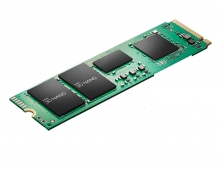
Researcers Propose SSD That Preserves Users' "Right to be Forgotten"
Japanese researchers have developed a privacy-protection solid-state storage (PP-SSS) system that can automatically erase specific data stored on it in a preset period of time. Researchers S.Tanakamaru, H.Yamazawa and K.Takeuchi, of Chuo University, Japan, developed the SSD-based system that ensures the "right to be forgotten" on the Internet. When the lifetime of, for example, data written for an social networking service is set in advance, the data stored on the memory will be automatically destroyed.
The PP-SSS system features 1Xnm 3bit/cell triple-level cell (TLC) NAND flash memory. Private data is automatically corrupted within the hardware itself based on expiration dates that are individually selectable for each file.
The system is based on the fact that the the error probability (BER-bit error rate) of data stored on an SSD can accurately predicted. Data errors occur on an SSD after a long period of time or as the number of write/erase cycles increases. Electrons on the SSD's floating gates start to leak, but that amount of electrons can be predicted, meaning that , the error probability can be predicted as well.
By using this predictability, a certain number of errors are intentionally injected, limiting the data lifetime due to failure of error correction. The higher the number of write/erase cycles of the memory or the shorter the preset lifetime, the more the amount of errors should be introduced in advance.
The researchers have confirmed that the data is destroyed at the preset time and becomes uncorrectable. However, the memory elements are not physically damaged and, therefore, can be reused.
The new technology is currently in a proof-of-concept stage.
Details were announced at Symposium on VLSI Circuits, which ran from June 15 to 19, 2015, in Kyoto City.





















